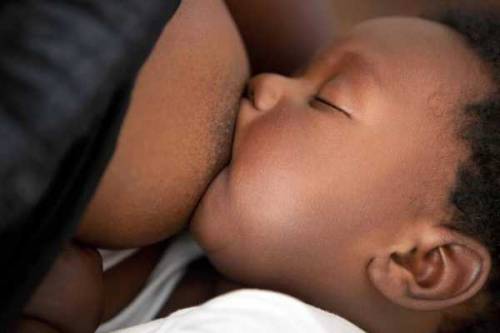
Faiza Auwalu of Unguwar Jummai ward of Bum-Bum community, Mai'Adua Local Government Area of Katsina State exclusively breast fed her second and third children for six months after birth.
The 22-year-old mother said she heard about exclusive breast feeding over the radio and decided to put it into practice, adding that the two children she exclusively breastfed are healthier than her first child whom she gave water along with breast milk.
"My daughter who I have been exclusively breastfeeding since the last four months has never been sick. I have not been going to buy medicines for her and she has been growing very fast," she said.
The World Health Organisation (WHO) recommends that infants be exclusively breastfed for the first six months of life to achieve growth, development and health.
Exclusive breastfeeding means that the infant receives only breast milk. No other liquid is given, not even water with the exception of oral rehydration solution or drops/syrups of vitamins, minerals and medicines.
According to the Minister of Health, Prof Isaac Adewole, exclusive breastfeeding is the foundation for human building.
He said: "Optimal breastfeeding practices, which include timely initiation of breastfeeding within 30 minutes of delivery, exclusive breastfeeding of 0-6 months with only breast milk, no other milks, solid or semi-solid foods and not even giving baby water until the 6th completed month has proven great impact to health, education, economic returns to the child, family, community and nation at large.